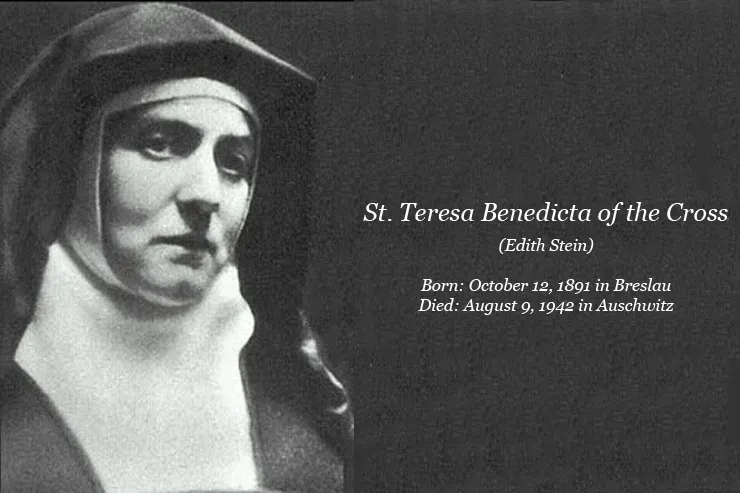Today Jesus extols the virtues of child-like faith. Such a faith is dependent on our God who seeks us out like a shepherd in search of a lost sheep. This is a faith that realizes that God is in charge, and that we are happiest when we let God do what he wants to do in us, rather than fighting his inspiration. This was the kind of faith that Saint Teresa Benedicta of the Cross had.
Born into a prominent Jewish family in Breslau, Germany as Edith Stein, she abandoned Judaism in her teens. She studied philosophy under Edmund Husserl, a leading proponent of the philosophy of phenomenology. Edith earned a doctorate in philosophy in 1916. Later, she was influenced by the writings of Saint Teresa of Avila, and she became a Catholic on January 1, 1922. She taught in various schools until 1933, when anti-semitic legislation went into effect, and at that time entered the Carmelite convent at Cologne, where she took the name Teresa Benedicta of the Cross.
At the end of 1939, she moved to the Carmelite monastery in Echt, Netherlands. The Nazis occupied that country in 1940. In retaliation for being denounced by the Dutch bishops, the Nazis arrested all Dutch Jews who had become Christians. Teresa Benedicta and her sister Rosa, also a Catholic, died in a gas chamber in Auschwitz on August 9, 1942.
Faithfulness is easy when there aren’t any obstacles on our path to God. What we need to remember is that when obstacles appear, it doesn’t mean we are cut off from our God. That can never happen. When obstacles appear, when our faith is tested, we need to listen for God’s voice and follow the way he marks out for us. The Psalmist today has all the advice we need to hear: “How sweet to my palate are your promises, sweeter than honey to my mouth!”
